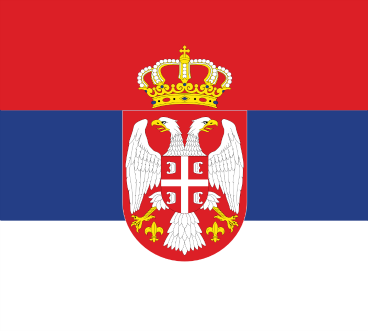Mr. President, 5 years ago, the speaker of the Slovak Parliament, Ivan Gasparovic, described his country’s new constitution as `an expression of centuries-old emancipation efforts of the Slovak people to have a sovereign state of their own.’ He also spoke of its `supreme binding force.’ Since then, the people who present themselves as the guardians of Slovakia’s statehood have undermined Slovakia’s constitution. This is what they have done.
This May, the Ministry of Interior ignored the Constitutional Court’s ruling and altered an important referendum on NATO and on the direct election of the President, effectively denying the people of Slovakia their constitutionally guaranteed right to register their views through a referendum. Defending its actions, members of the Prime Minister’s party insisted that they acted in conformity with the constitution–as they interpreted it–and that they were justified in placing their views ahead of the ruling of the highest court in the land. The actions of the ruling coalition in the case of Frantisek Gaulieder makes clear that the Meciar government has a profound and fundamental disregard for the constitution of Slovakia.
Then there is the case of Frantisek Gaulieder. Frantisek Gaulieder is a member of the Slovak Parliament who was removed from office because he renounced his membership in Prime Minister Vladimir Meciar’s party, the Movement for a Democratic Slovakia. On July 25, the Constitutional Court confirmed that the ruling coalition’s action which deprived Gaulieder of his seat was unconstitutional and violated Gaulieder’s rights. But members of the Prime Minister’s coalition again claimed that they, and not the Constitutional Court, have the right to determine what the constitution means, and have declined to act to restore Gaulieder to his seat in Parliament. In short, the `supreme binding force’ that Ivan Gasparovic spoke of 5 years ago no longer flows from the constitution, but from the will of Vladimir Meciar.
When there are differences of opinion as to what a constitution means, whether those differences arise between branches of government or between the government and its citizens, in a state operating under the rule of law, it is the job of a constitutional court to interpret what the constitution means, not the Prime Minister or Parliament. Although this principle is taken for granted in many parts of Europe, and was established early in American history by the famous Supreme Court case of Marbury versus Madison, it has apparently not yet been accepted in Slovakia.
Mr. President, the Slovak Democratic Coalition has moved, four times, to convene a special session of the Parliament in order to implement the decision of the Constitutional Court and restore Frantisek Gaulieder to his seat. Four times, however, Prime Minister Meciar’s coalition has boycotted their own Parliament rather than face the following dilemma: restore Gaulieder to his seat–consistent with the Constitutional Court’s decision–and risk the chance that others will follow Gaulieder’s example and defect from the Prime Minister’s party, or vote down the Slovak Democratic Coalition’s proposal to restore Gaulieder to his seat and confirm that whatever form of government exists in Slovakia, it is not constitutional democracy, at least not as we understand it.
Sooner or later, the Slovak Parliament will reconvene. When it acts, or fails to act, on the Gaulieder question, we will know whether Slovakia is committed to becoming a functioning constitutional democracy. If it is not, what it will become is an isolated State under constant international pressure and scrutiny, cut off from a promising and prosperous future by the arrogance and greed of its own leaders. As Vladimir Meciar is asked in his weekly news show, what next, Mr. Prime Minister?




